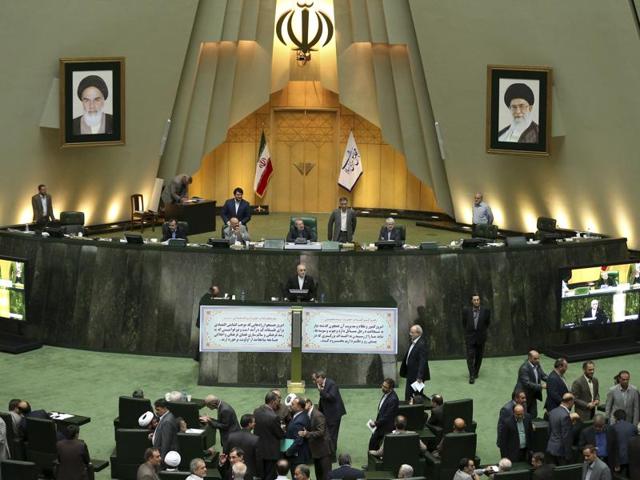Iran’s nuke deal good for India’s ties with US, UNSC bid
A successful implementation of the country’s nuclear deal is good for India’s ties with the US and its UNSC bid.
The Iran nuclear agreement and the prospect of a reduction in Iran’s nuclear capability have important implications for America’s relations with India. The timing is relevant as momentum builds in the UN to modernise the structure of its Security Council (UNSC), with the possibility of a more powerful role for India.

The nuclear deal must be primarily viewed through the lens of how it affects Iran’s nuclear programme and regional stability. But the deal will also have important effects on countries that are not directly threatened by an unfettered Iranian nuclear programme. India figures prominently on such a list of countries.
India’s policy of “non-alignment” has allowed it to maintain relations with many nations. Today, India-Iran relations are defined largely by energy, diplomacy, and investment. Iran remains a top petroleum supplier to India. There is a regular stream of high-level visits between the two countries. In May, India signed a new contract for the development of two terminals in Iran’s Chabahar port to secure connectivity with Afghanistan. In August, two Indian naval ships spent five days in Iran, conducting joint exercises and other activities. India seeks to enhance its energy imports from Iran to include natural gas, looking at overland, undersea, or oversea options. India is also reviving plans to develop a government-led fertiliser plant in Iran.
However, India’s support for Iran in recent years can sometimes be over-stated. India has been reducing its oil imports from Iran, voted in concert with the US on Iran-related votes in the International Atomic Energy Agency (IAEA), and has slowed its work at Chabahar in Iran. These steps have given increased confidence to US policymakers that a deeper strategic partnership with India is possible, which helps open the door to deeper cooperation in areas such as defence and civilian nuclear cooperation.
As the UN looks to reform the UNSC, India covets a larger role. The decision in September to initiate text-based negotiations on UNSC reforms has been greeted by the Indian government. However, other nations including some existing UNSC members, or rivals of those countries that are likely to be considered, have reservations about expanding the UNSC. American support for national bids to join the UNSC will be critical, and it is far easier to make the case for a country’s inclusion if it is already contributing to international security, and if it is not supporting regimes that the US opposes. Removing Iran as a possible obstacle is helpful in this regard. India’s continued relations with Iran, paired with growing relations with Israel, offers it an opportunity to use access to both capitals to help ensure the deal’s success.
A successful implementation of the Iran nuclear agreement should be very good for US-India relations. It will allow India to play a direct role in Afghanistan’s future through the development of the Chabahar port; it will help secure additional energy for India; and it will remove a regularly cited obstacle to strengthening US-India strategic relations. We are also hopeful that refreshed India-Iran relations will help Iran maintain a pathway that does not serve to destabilise an already volatile region. In the light of recent progress in reforming the UN Security Council, the timing could not be better.
Ami Bera is a member of the US House of Representatives and Richard M Rossow holds the Wadhwani Chair at the Center for Strategic and International Studies, Washington DC.
The views expressed are personal.





